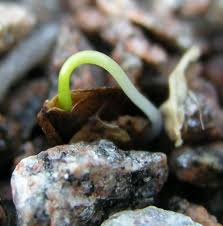 I love writing and as a psychologist I’m not so interested in how we use the structure of language and writing rules. Although these are an integral aspect of writing that we must observe for the sake of understanding meaning, I think more about why people write as opposed to how people write.
I love writing and as a psychologist I’m not so interested in how we use the structure of language and writing rules. Although these are an integral aspect of writing that we must observe for the sake of understanding meaning, I think more about why people write as opposed to how people write.
Twitter is a wonderful social networking tool, and today Emily Gale (thank you!) posted a link to the Postteentrauma blog about The Anatomy of a Novel. I was expecting a ‘ten tips for writing a novel’ type blog about structure, grammar or presentation. Instead, the blog has a selection of mini-interviews with authors who have detailed the background landscape for the own lives that have been transported into fiction. Other books, songs, experiences and locations that have brought inspiration are detailed.
I’ve often seen the writing process described in terms of growth metaphors, and thinking in these terms, the process that finally creates a story with a beginning, middle and end starts long before we write the first word on the page. Many authors shy away from this qualitative aspect of their work as, because of the distinction between creativity and business in the creative world, it may seem unbusiness-like or subjective. And, it’s easier to convey rules to other people in the form of teaching – you can’t teach someone to have an idea, they have to have it for themselves.
Yet we all have our own personal stories that we tell every moment of our lives, our internal narrative, and the narrative that we express to the world through communication. The seeds of an idea, a spark of consciousness, emerge from these personal worlds that we create for ourselves and are created by others. It may be worth noting here that, as opposed to a book of rules for language form and presentation, there are no rules for consciousness – as we do not know what it is.
This is why creativity is so magical. At the initial spark there is an excitement that can hardly be contained, another world, a possibility, spinning on it’s axis in your consciousness, a mix of the contributions for yourself and the world. The beginning of the story, when we make notes, plot plans on spreadsheets or start writing in earnest is when we plant the seed and we begin to measure what we have been, so far, creating. It’s at this point it becomes a dualistic realm of the dream and the rulebook – never quite the same.
I’d like to see more of these qualitative aspects of why people write. There’s the ‘write what you know’ perspective at odds with the ‘don’t write autobiographically’, but don’t we all draw from our own lives to write, even if it’s just the music we have on in the background that we write to? Although we may be writing a teen book and listening to Jazz fro the 1920’s, if the music sets a mood in your consciousness, it has contributed to the writing process. Maybe it triggered a childhood memory and allowed you to access it, or perhaps created an ambiance where you can invent an imagine? In any case, it’s your unique experience.
Obviously, there are more symbolic aspects of the process, like the lighthouse in the post above that is communicated clearly through the work, but later, when the novel you have put your soul into has grown, has been reaped and is filtering onto the consciousness of others via reading, will you remember what scaffolded you to create the first notion of that work?
The first seed of excitement and the fast heartbeat of the idea you know is ‘the next story’ won’t put money in the bank, but it it will make you catch your breath and smile. What made you do it?